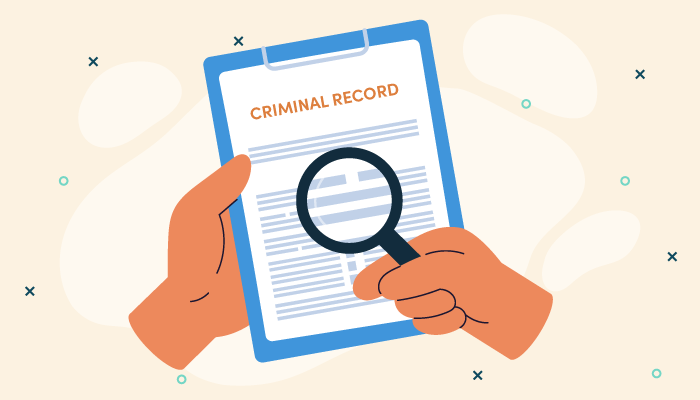Whereas Dubai is an amazing workplace, it doesn’t mean it opens its doors to anyone. There are rules and regulations for those who can and can’t work in Dubai.
For example, what does a criminal record mean to a job seeker in this city? Can you work in Dubai with a criminal record?
This article is a must-read for these answers and much more knowledge about the matter. Check it out before leaving for Dubai, especially if you have a criminal record.
Can You Enter Dubai with a Criminal Record?
Before looking at whether one can work in Dubai with a criminal record, it is fair enough to figure out if you can enter in the first place. The truth is that you can visit Dubai despite having a criminal record.
So, you can plan your holiday for United Arab Emirates (UAE) despite having a criminal record. It shouldn’t make you shy away from applying for further studies in Dubai.
Besides holidays and study, you shouldn’t worry about a criminal record when going for temporary work. After all, you only need a mission or medical visa lasting at least 3 months.
However, if your criminal record is from any of the emirates, you may not enter. That’s unless you have clearance from its local authorities.
Let’s look at common things people worry about when planning to visit Dubai.
Going to Dubai with a Drug Conviction
In Dubai, a drug conviction is like any other criminal record. So, expect the same treatment as other people with criminal records.
So, despite the conviction, you are free to visit the city for a holiday. However, consult the UAE embassy in your country before leaving for Dubai to work under these circumstances.
Going to Dubai with a Tattoo
It is no secret that tattoos are discouraged in Dubai. It is an Islamic city that perceives a tattoo as self-harm.
However, it isn’t against visitors having tattoos. You can stay despite inappropriate and offensive designs, including naked bodies and explicit language, as long as you cover them well.
Going to Dubai with Your Passport Having an Israeli Stamp
Most people also think you will have trouble entering Dubai if your passport has an Israeli stamp. It is a non-issue and thus shouldn’t bother you even briefly.
Going to Dubai If You Are Homosexual
Despite homosexuality being illegal in Dubai, no need to worry about visiting Dubai if you are homosexual. As long as you don’t grab the people’s attention and adhere to the no public displays of affection rule, you can stay for as long as your visa allows.
Can You Work in Dubai with a Criminal Record
Whereas entering Dubai with a criminal record is easy, the case is different regarding job seeking. Such a record makes it hard, if not impossible, to secure a job.
That’s especially if the criminal record isn’t older than 5 years. It is also hard for employers to miss it since they do thorough background security checks before hiring you.
After the security background check, you will be cleared or not, depending on your criminal history. If cleared, you will easily find a job in the city.
As a foreigner planning to work in Dubai, you must submit a good conduct certificate. Otherwise, don’t expect any signing of an employment contract.
If you are wondering where to get the certificate, it should be issued in your country. However, if that’s not the country you worked in before relocating to Dubai, this certification comes from another country.
Importance of the Certification
Sometime back, people didn’t need this certification to secure a job in Dubai. However, there was an emerging trend of most of its laborers having a criminal record in other countries, especially their home state.
In some cases, it was serious to the extent that Dubai handled wanted criminals. Since that was too much to handle, the issue of a good conduct certificate came up.
The certificate helps Dubai and the employers become better judges of character. It was also a way of enhancing the city’s and its residents’ safety.
Whether you are skilled on non-skilled, you need the certification. Therefore, it applies to domestic workers and their office counterparts.
Who Should and Shouldn’t Produce the Certification?
Here are various groups entering Dubai and whether they need a good conduct certificate. Some are residents, whereas others are non-residents.
Which residents require this certification? What about the non-residents who don’t need it?
Let’s find out when it is and isn’t a requirement.
Students
If you are a student working part-time in Dubai, rest assured that no one will ask you for the certification.
Tourists
The same applies to tourists in Dubai. You don’t need this certification to enjoy a holiday in the city.
Other Special Groups
Will you work temporarily in Dubai and have a mission or medical visa? If so, you don’t need the certification, and you will likely be in the city for not more than 3 months.
Dubai Residents
Interestingly, you don’t need to produce the certification as a Dubai resident. However, there is an exception regarding these people.
Have you been working in another country within the last 5 years? If you nod, you must issue the certification despite being the city’s resident.
The Ministry of Foreign Affairs and International Cooperation will certify the certification once you submit it. It only applies to job seekers, and your family members, including dependents, won’t need it whatsoever.
Foreign Job Applicants
If you aren’t a resident of Dubai, as mentioned earlier, you won’t get a job contract without the certification. The matter gets more interesting for some foreigners than others.
For instance, some have to share several certifications to get the job. It is usually the case if you have worked in more than 1 country in the last 5 years.
Under such circumstances, you need to produce certifications from each country. If you have worked in 2 countries, submit certificates from each state.










